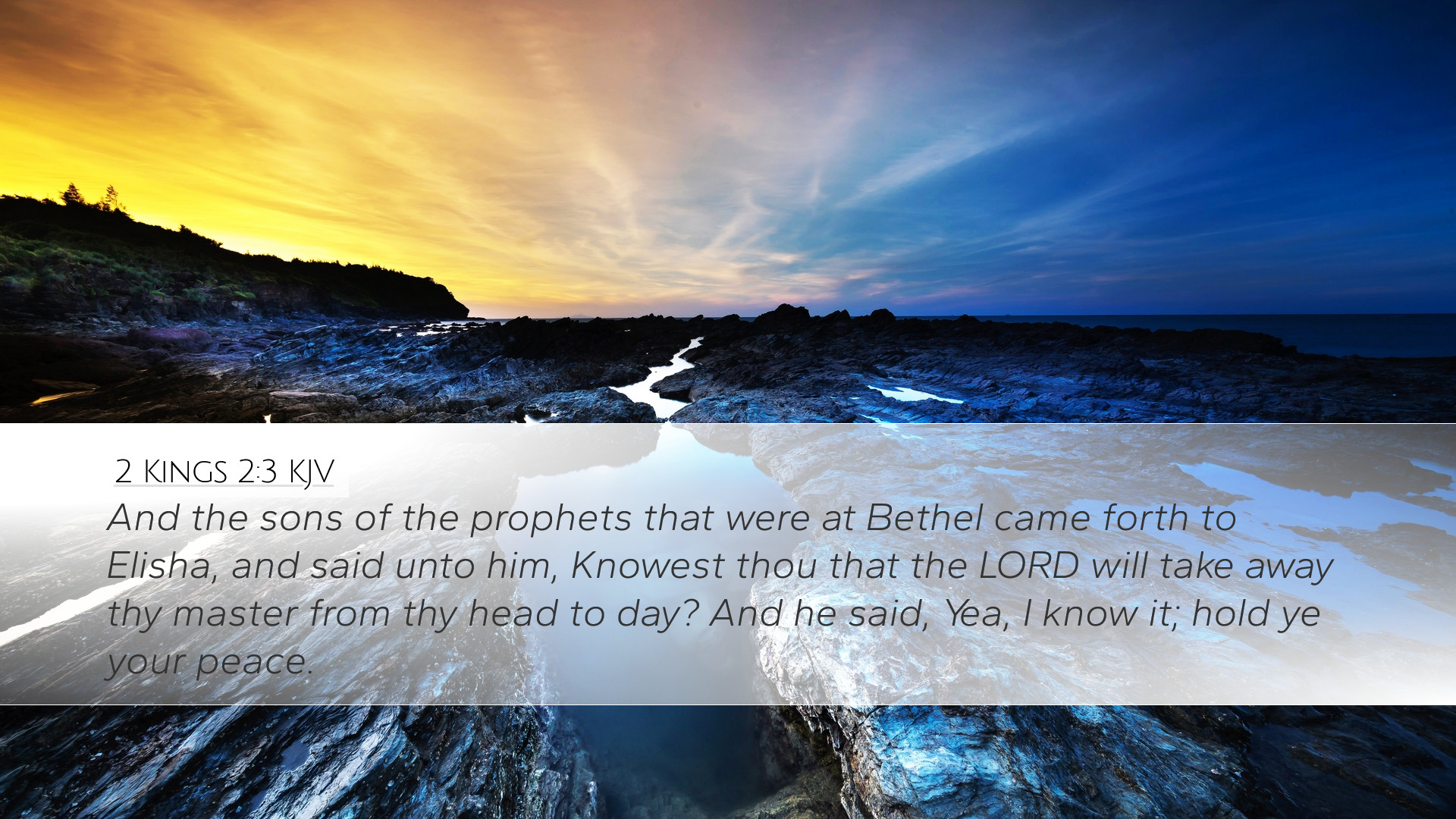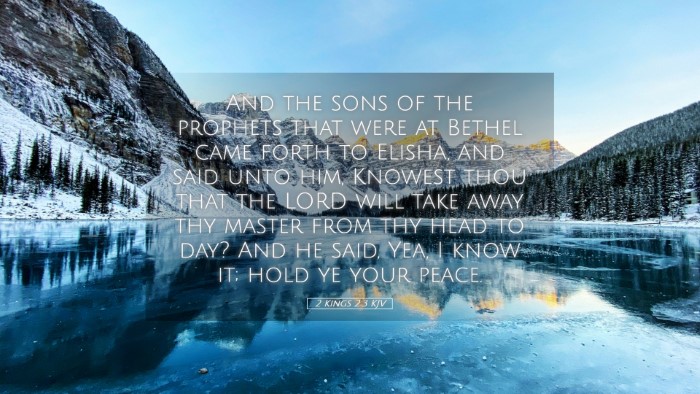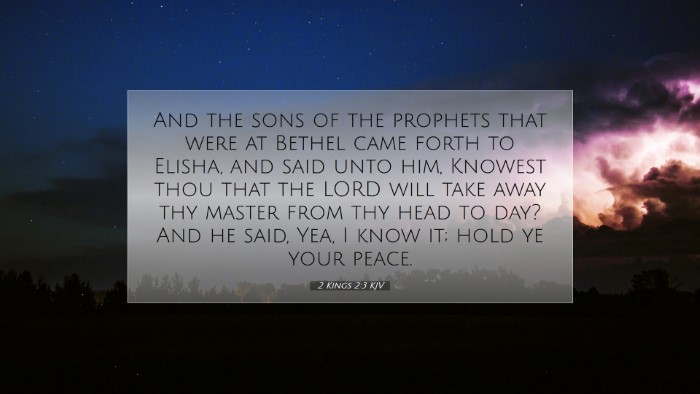Commentary on 2 Kings 2:3
The context of 2 Kings 2:3 is critical for understanding the significance of the events surrounding the transition of prophetic leadership from Elijah to Elisha. The verse states:
"And the sons of the prophets that were at Bethel came forth to Elisha, and said unto him, Knowest thou that the LORD will take away thy master from thy head to day?" (2 Kings 2:3, KJV)
Contextual Analysis
Throughout the narrative, we see the theme of prophetic succession and the community of prophets, often referred to as the 'sons of the prophets.' This term indicates a structured group of men dedicated to the ministry of prophecy and thereby significant in the theological narrative of Israel.
Insight from Matthew Henry
-
Matthew Henry emphasizes the role of these 'sons of the prophets.' He points out that their knowledge of the impending departure of Elijah highlights their spiritual discernment and awareness of God’s workings. They recognize a significant spiritual transition is about to occur.
-
Henry reflects on the phrase, "Knowest thou that the LORD will take away thy master?" suggesting that this statement serves both as an acknowledgment of Elijah’s imminent departure and as an encouragement for Elisha to prepare himself for the prophetic office.
-
He also notes that the sons of the prophets demonstrate concern for Elisha, offering a sense of camaraderie among those called to ministry. This camaraderie is vital for understanding the support network that exists within the body of believers, particularly among those engaged in prophetic vocations.
Insights from Albert Barnes
-
Barnes highlights that the sons of the prophets perceiving Elijah's departure symbolizes the end of an era in Israel's prophetic history. Their inquiry to Elisha serves not only as a foreshadowing of loss but also as a call to recognize God’s ongoing plan.
-
He adds that the phrase "thy master" is indicative of the strong mentor-student relationship between Elijah and Elisha. This relationship underscores the importance of mentorship in spiritual leadership and underscores Elisha’s readiness to take on the mantle of leadership.
-
Barnes further comments on the location of Bethel, a significant city with historical religious importance. This setting provides deeper meaning to the encounter between the prophets, denoting a sacred space where spiritual truths are revealed.
Observations from Adam Clarke
-
Adam Clarke provides a detailed examination of the term "sons of the prophets," discussing their origins and roles. He explains that this was likely a formal group dedicated to studying and practicing the prophetic arts, highlighting the structured nature of prophetic ministry at that time.
-
Clarke also offers a theological reflection on the significance of Elijah’s departure. He suggests that this event illustrates the continuity of God's mission and emphasizes that while human leaders may come and go, God's work continues through those He has chosen.
-
His analysis includes a reminder of the significance of divine revelation in the lives of believers, asserting that just as the prophets were aware of God's movements, current believers should remain vigilant and discerning in their spiritual journeys.
Theological Implications
This verse, and indeed this chapter, offers profound theological insights that can serve as crucial teaching moments for pastors and scholars:
-
Transition in Leadership: The passage illustrates the divine orchestration of leadership transition, reinforcing God’s sovereignty over His people and His purpose in selecting leaders.
-
Community and Mentorship: The communal aspect of the sons of the prophets highlights the importance of being part of a spiritually supportive community. This has implications for church structure and the nurturing of future leaders.
-
Awareness of God’s Plan: The foreknowledge exhibited by the prophets serves as a reminder for believers to remain attuned to God’s plans and movements within their own lives and ministries.
Conclusion
2 Kings 2:3 challenges contemporary leaders and believers to recognize the significance of prophetic ministry, the importance of community, and the necessity of preparing for the future that God has ordained. As we reflect on this passage and its commentary, we are reminded that God is actively working through His chosen vessels, and it is our duty to discern and follow His call.


